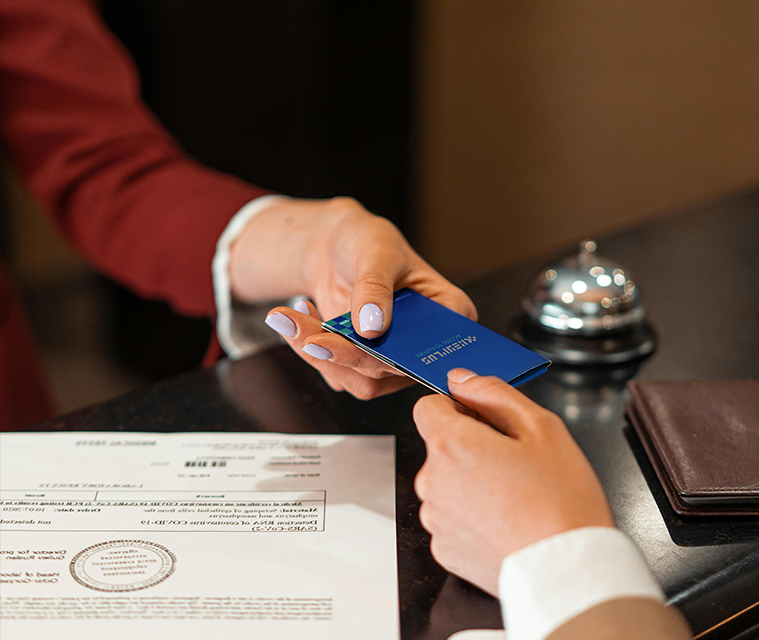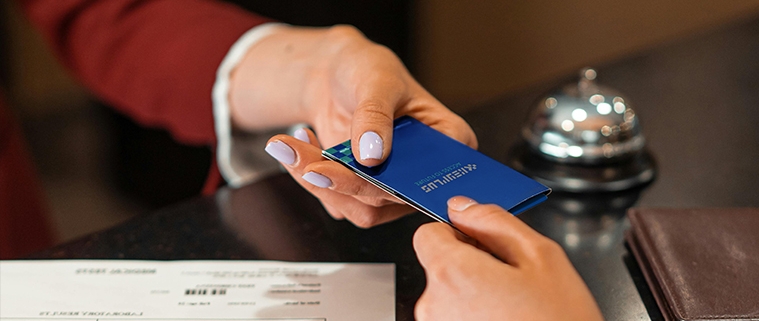Why Are Electronic Hotel Door Locks Becoming Popular?
The hospitality industry is rapidly evolving, and one of the most noticeable changes is the shift from traditional key-based systems to electronic hotel door locks. Hotels across the U.S.—from budget motels to luxury resorts—are adopting smart locks, and for good reason. These advanced systems enhance security, operational efficiency, guest convenience, and cost savings, making them a must-have in modern lodging.
This article explores four key reasons why electronic hotel door locks are becoming the new standard, how they benefit both guests and hoteliers, and what the future holds for this technology.
1. Enhanced Security: Protecting Guests and Property
Security is a top priority for travelers, and traditional metal keys or magnetic stripe cards are no longer secure enough. Electronic hotel locks solve multiple safety concerns:
No More Lost or Stolen Keys
- Old-fashioned keys can be copied, and magnetic cards can be easily duplicated or hacked.
- Modern RFID, NFC, or mobile-based locks use encrypted digital keys that expire after checkout, eliminating unauthorized access.
Real-Time Monitoring & Alerts
- Hotel staff can track who enters a room and when, helping prevent theft or unauthorized access.
- If someone tries to tamper with the lock, the system can send instant alerts to management.
Customizable Access Control
- Housekeeping and maintenance staff can be given time-limited access, reducing risks of internal security breaches.
- In emergencies (like a fire), managers can remotely unlock doors to assist guests.
With rising concerns over data privacy and physical safety, electronic locks provide peace of mind for both guests and hotel operators.

2. Streamlined Operations: Saving Time and Money
Hotels run on efficiency, and electronic locks cut down on manual tasks, allowing staff to focus on better guest service.
Faster Check-In & Check-Out
- Guests can bypass the front desk with mobile key delivery via email or app.
- Major chains like Marriott and Hilton already use this feature, reducing wait times.
No More Key Card Headaches
- Lost key cards? No problem—hotels can issue a new digital key instantly without reprogramming.
- No need to replace physical locks when keys go missing (a common issue with traditional systems).
Integration with Hotel Management Systems
- Smart locks sync with Property Management Systems (PMS), automatically updating room status when a guest checks out.
- This reduces errors in housekeeping and billing, improving overall efficiency.
By automating routine tasks, hotels can reduce labor costs and improve service speed—a win-win for staff and guests.
3. Improved Guest Experience: Convenience and Personalization
Today’s travelers expect seamless, tech-driven experiences, and electronic locks deliver just that.
Contactless Entry (A Post-Pandemic Must)
- After COVID-19, guests prefer touchless solutions—mobile keys allow them to skip front desk interactions.
- Some hotels even offer voice-activated unlocking via smart assistants like Alexa.
Flexible Access for Shared Stays
- Families or business travelers can share digital keys with others without needing extra key cards.
- Temporary access can be granted to delivery personnel or visitors without compromising security.
Smart Room Integration
- Many high-end hotels now link door locks to room automation systems, so lights, AC, and TV turn on as soon as the door unlocks.
- Some systems even adjust room settings based on guest preferences stored in loyalty programs.
By offering faster, smarter, and more personalized stays, electronic locks help hotels stand out in a competitive market.
4. Cost-Effective and Future-Ready Investment
While electronic locks require an initial investment, they save money in the long run and prepare hotels for future tech trends.
Lower Maintenance Costs
- Mechanical locks wear out and need frequent repairs—smart locks have fewer moving parts, reducing breakdowns.
- Software updates can be done remotely, avoiding service calls.
Eco-Friendly and Sustainable
- Eliminating plastic key cards reduces waste and environmental impact.
- Some hotels now use biodegradable mobile keys, appealing to eco-conscious travelers.
Preparing for the Future
- As AI and IoT (Internet of Things) advance, locks will integrate with facial recognition, voice control, and predictive analytics.
- Hotels that adopt smart locks now will stay ahead of competitors as guest expectations evolve.
Conclusion: The Future of Hotel Access Is Digital
Electronic hotel door locks are not just a trend—they’re the new standard. With benefits like stronger security, smoother operations, happier guests, and long-term savings, it’s no surprise that more U.S. hotels are making the switch.
As technology continues to evolve, we’ll see even more innovations—like AI-powered entry systems and fully automated hotels. For now, one thing is clear: Smart locks are here to stay, and hotels that embrace them will lead the industry in both guest satisfaction and profitability.
Would you prefer a hotel with a traditional key or a high-tech, seamless entry system? The answer is obvious—convenience and security win every time.
Related Blog









